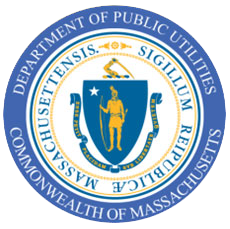- Energy Facilities Siting Board
- Department of Public Utilities
Media Contact
Craig Gilvarg, Press Secretary
Boston — The Energy Facilities Siting Board (EFSB) today issued a Notice of Inquiry opening a formal inquiry to assess opportunities to enhance equitable public awareness of, and meaningful participation in, EFSB proceedings. The EFSB voted formally to approve the Notice of Inquiry at a Board Meeting held yesterday. The Department of Public Utilities (DPU) issued a companion Order in the spring, aimed at investigating ways to enhance existing processes and boost public participation in its proceedings. The DPU received extensive and thoughtful comments during the comment period. Through these investigations, the EFSB and DPU will explore opportunities to boost stakeholder engagement and ensure that all people have been provided with the same opportunity to participate in EFSB and DPU proceedings, regardless of English language proficiency.
“It is critical that all residents are able to provide meaningful input whenever energy infrastructure is proposed and sited in their communities,” said Energy and Environmental Affairs and EFSB Chair Secretary Kathleen Theoharides. “We look forward to hearing from the public on how best to improve the Energy Facilities Siting Board’s public participation and notification process, which is just one step toward building a more just and equitable clean energy future here in the Commonwealth.”
In 2020, consistent with the Executive Office of Energy and Environmental Affairs’ (EEA) 2017 Environmental Justice Policy, the DPU and the EFSB began work to develop Environmental Justice strategies to enhance meaningful involvement of all people and communities with the development, implementation, and enforcement of environmental laws, regulations, and policies, including climate change policies, and the equitable distributions of energy and environmental benefits and burdens. As part of this process, the DPU and EFSB are evaluating methods to promote further public involvement in their respective proceedings.
Over the past year, EEA has actively engaged with all its agencies, including the DPU and EFSB, on the development of Environmental Justice strategies. As part of this effort, EEA hosted informal listening sessions with environmental justice stakeholders intended to inform the development of methods to track the fair distribution of energy and environmental benefits and burdens and to engage more effectively with Massachusetts environmental justice populations. The comments provided by stakeholders at those listening sessions will inform the development of agency-specific environmental justice strategies.
As part of these efforts, the EFSB has opened this inquiry to explore how to boost community outreach and increase participation and engagement in energy siting proceedings. The EFSB expects to ultimately establish an Environmental Justice strategy which may include the promulgation of rules, issuance of guidelines, procedures and/or regulations which will support robust, comprehensive and equitable public engagement in proceedings.
Notice of this proceeding has been translated into Spanish and Portuguese, posted on the EFSB website, will be published in multiple newspapers, sent to stakeholders, and sent to all municipalities in the Commonwealth. The EFSB invites and encourages all interested individuals to submit written comments on this matter no later than September 10, 2021. Upon receipt and review of the comments received, the EFSB will determine the next steps, which may include further opportunities for public engagement on this topic.
On March 26, 2021, Governor Charlie Baker signed comprehensive climate change legislation that includes important provisions related to Environmental Justice. Recognizing the significant impact of climate change on Environmental Justice communities overburdened by poor air quality and disproportionately high levels of pollution, the legislation statutorily defines Environmental Justice and environmental burdens, including climate change as an environmental burden. The legislation also expands Massachusetts Environmental Policy Act (MEPA) review to require an Environmental Impact Report for all projects that impact air quality within five miles of an Environmental Justice Neighborhood, and requires the Department of Environmental Protection to conduct a stakeholder process to develop a cumulative impact analysis as a condition of permitting certain projects. This change would, for the first time, require MEPA to evaluate not just individual project impacts but also historic environmental pollution throughout the community through the permit process.
To read this press release in Spanish, please click here. To read this press release in Portuguese, please click here.
###
